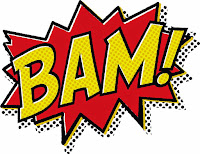My pervading thought while reading the short basketball novel The Crossover was that even my sixth graders who were sworn non-readers would enjoy this book.
It reminded me of a "reading night" my middle school organized last year at a community center in one of the neighborhoods where our students lived. The only students that came were the six to eight kids we were able to drag in from the basketball court (wrong place, wrong time). The teachers who volunteered to come had brought our favorite books and we read those books to our small groups of kids for about 20 minutes.
My well-meaning but slightly out-of-touch principal then gave a stirring speech about the usefulness of reading. During this middle-aged middle-class woman's haphazard attempt to connect to these poor, basketball-loving 13-year-old boys, she said, "Take basketball, for instance. Y'all love playing basketball, but let's say you want to get better at your free throw. You can go look it up in a book or online and READ about how to improve your free throw. Reading is just so useful!"
Apart from inspiring me to grow dreads, this book did not personally move me. I felt only a slight connection to Josh Bell and even less so to his twin brother, JB and basketball has always been my least favorite sport to play and watch. It was well-done, however, and I'm sure it will inspire some kids who don't usually pick up books for pleasure to enjoy some fast-paced fiction.



